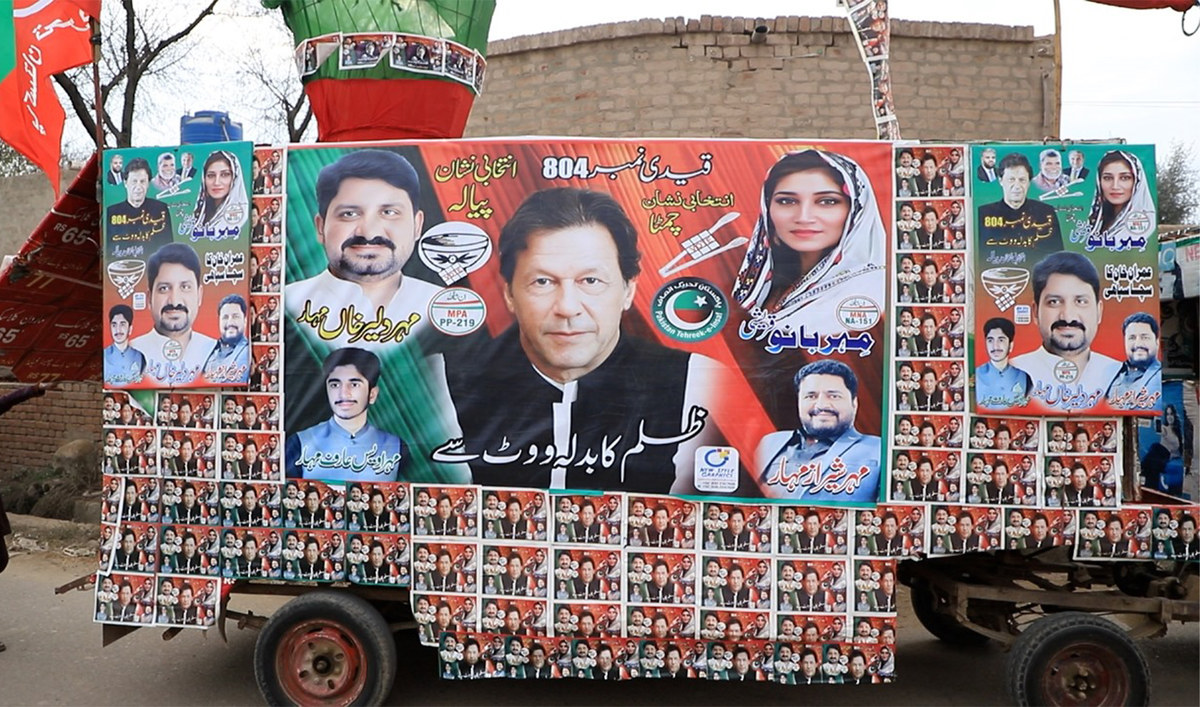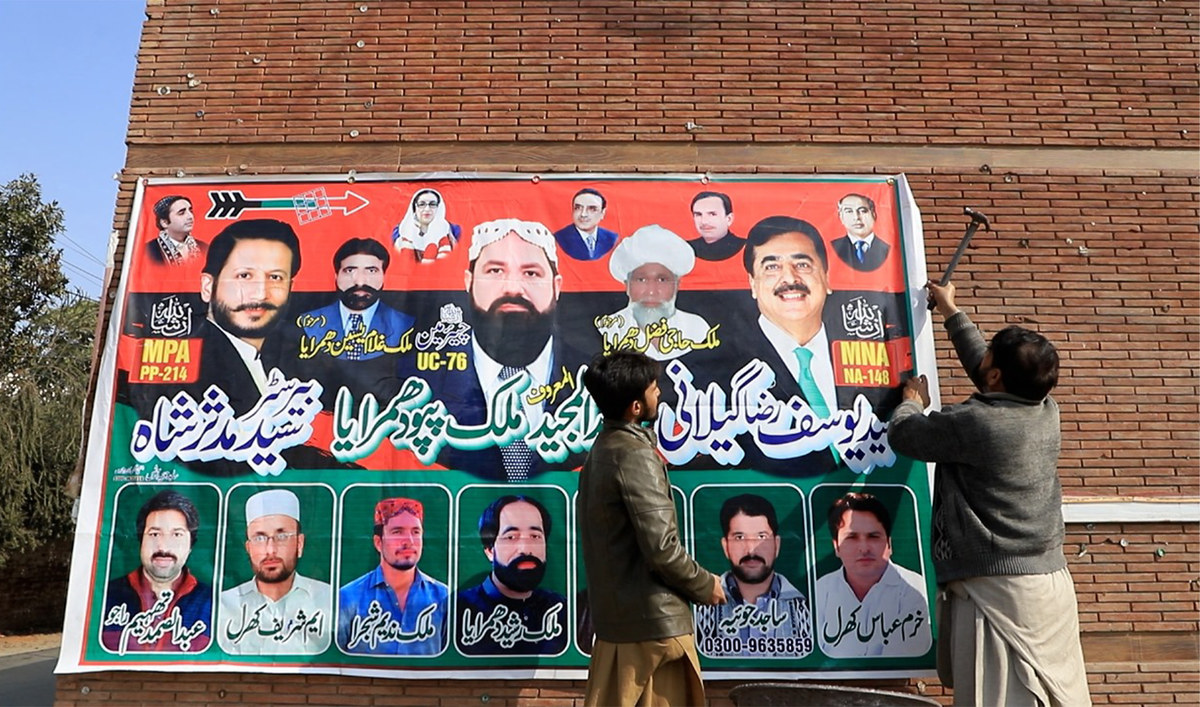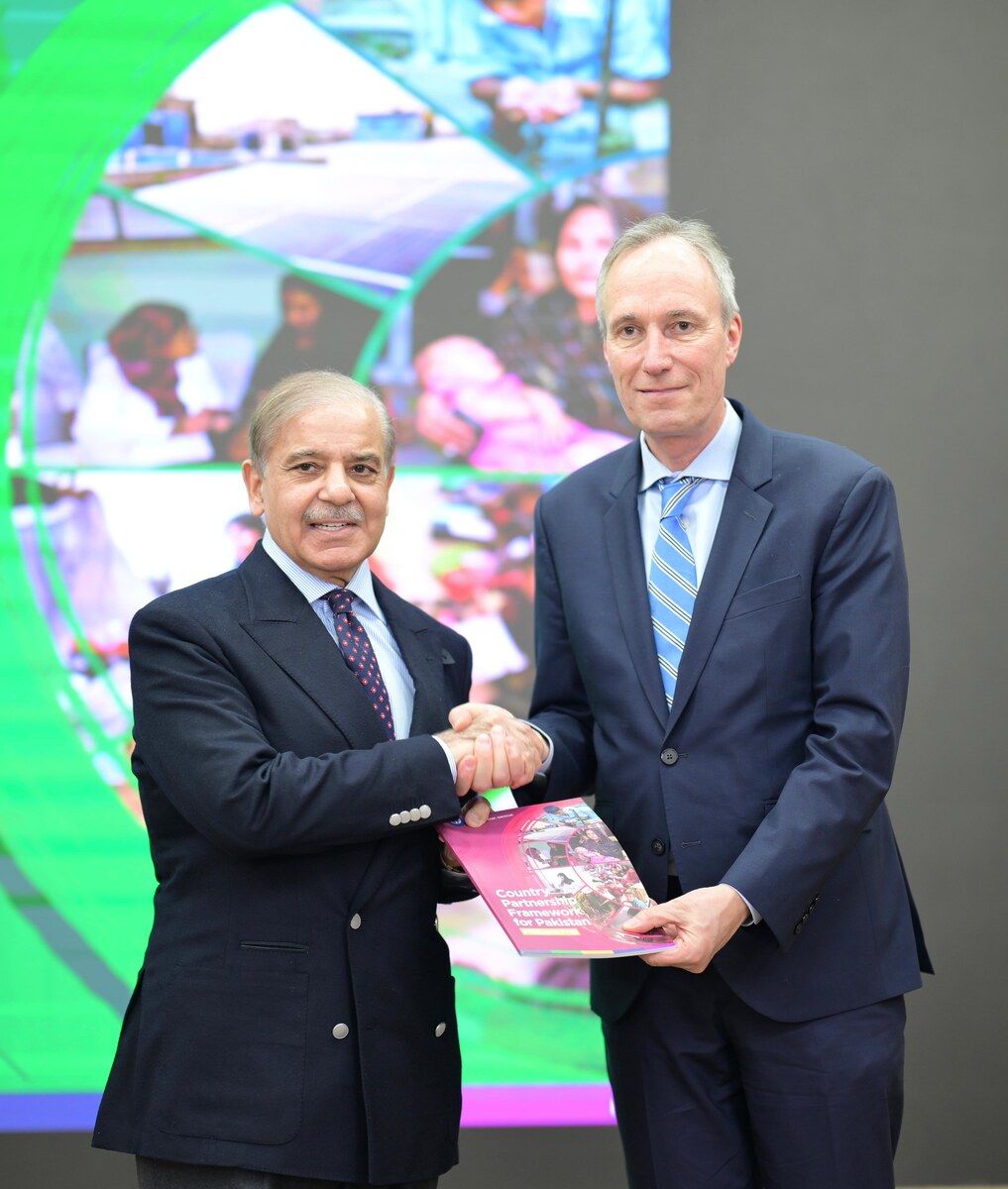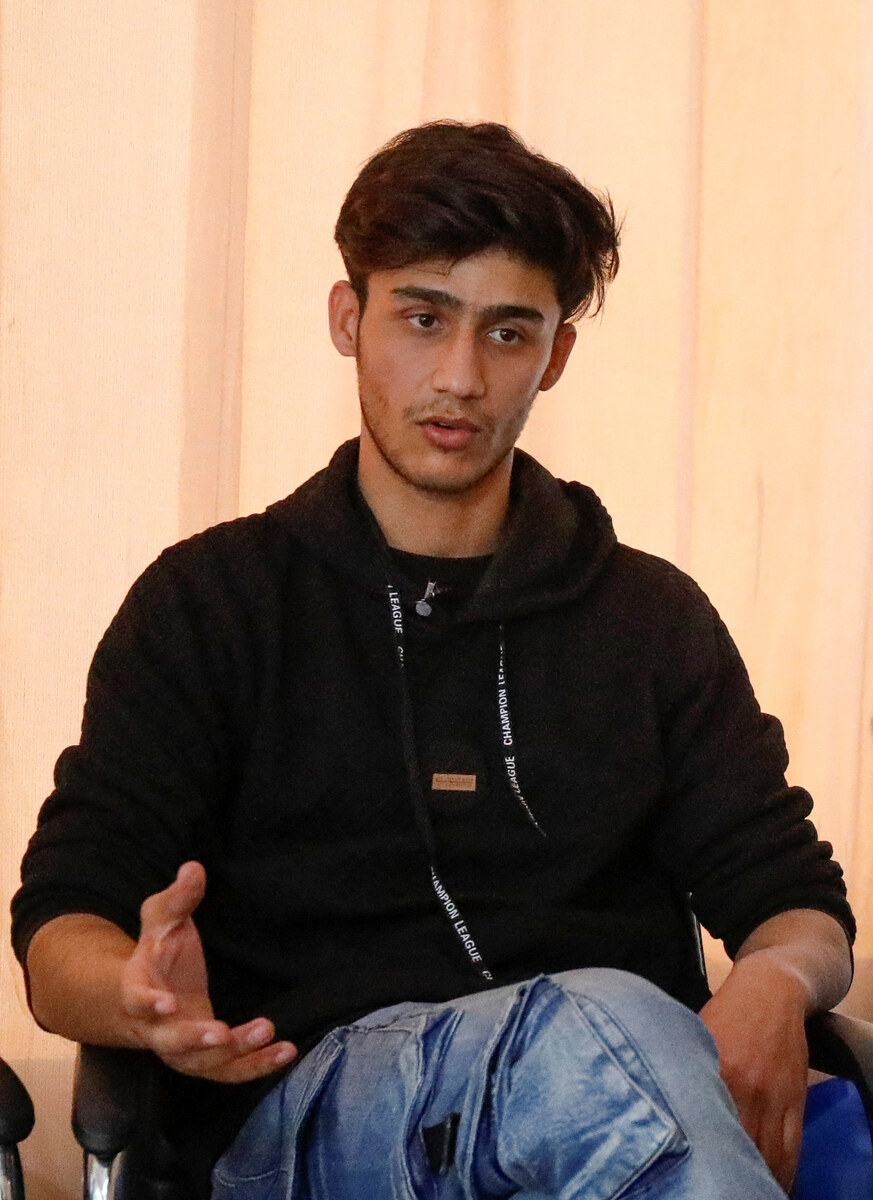MULTAN: Meher Bano Qureshi waved at the charged crowd of supporters chanting her name and showering her with rose petals as she climbed out of the imposing, black SUV in Multan in central Pakistan, where her family has built its political power on its status as guardians of one of the city’s many ornate, centuries-old Sufi shrines.
But as millions of Pakistanis go to the polls on Feb. 8, Qureshi is counting on something more temporal than prayers to tempt voters: the wild popularity of jailed former Prime Minister Imran Khan, whose Pakistan Tehreek-e-Insaf (PTI) party she is backed by.
Her father Shah Mahmood Qureshi, Khan’s deputy in his party and foreign minister when the ousted PM ruled from 2018-2022, is the makhdoom, or guardian, of a prominent shrine and a large landowner to boot. Like dozens of other PTI leaders, Shah is barred from running in upcoming elections marred by widespread accusations of pre-poll rigging and interference by a military that Khan is widely believed to have fallen out with in the last months of his premiership. The army says it does not interfere in politics.
“Within this constituency [NA-151] and within Pakistan, you can see that Imran Khan’s message is resonating with the people and they can see that this man walks the talk,” Qureshi, who is in her early forties, told Arab News in an interview, adding that a number of back to back jail sentences for Khan announced this month had only bolstered his popularity and those of the candidates supporting him.
This month, her father was also awarded a 10-year jail sentence along with Khan in what has popularly come to be called the “cipher case,” in which the two are accused of leaking official secrets. Khan says all cases against him are politically motivated to keep him and his PTI out of elections.
With its top leaders in prison, the PTI’s election contest has been further complicated by the election commission stripping the party of its unifying symbol of the bat, saying it had not conducted intra-party elections, a legal requirement. All candidates for the party now have to contest as independents, each with its own symbol.
But the party and candidates like Qureshi believe the state-backed crackdown has only made them more popular.
“Today he [Khan] is in jail, my father [Shah] who was going to contest from here, he is also in jail,” Qureshi said. “They haven’t compromised, they have stood their ground, they have stood by the people of Pakistan and the people of Pakistan can see that and they appreciate it and therefore, they are standing with us.”
However, she admitted that the election race had been difficult due to “state highhandedness” which she described as being at an “unrelenting level.”
“It is a level that we haven’t seen before in any elections in Pakistan and this is a very unique election in terms of that,” Qureshi said.
“Once we visit somewhere, even if it is a 50-person corner meeting, or a 15-person corner meeting, they are visited by police, they are given phone calls by local police and so, people are genuinely very fearful,” the candidate said, describing a pattern of intimidation she said the PTI and candidates backed by it were facing.

The picture taken on February 3, 2024, shows a vehicle decorated with the postures of the Pakistan Tehreek-e-Insaf party in Multan, Pakistan. (AN photo)
The caretaker government which is overseeing elections has repeatedly said all parties are being provided fair competition for the Feb. 8 polls while the military denies it interferes in election activities other than when asked by the election commission to provide security.
“POLITICS OF DEVELOPMENT”
Up against Qureshi is the Gilani family led by ex-prime minister Yousaf Raza Gilani, currently a senator and a large landowner who commands the loyalty of thousands of devotees in the ancient city. Both clans are typical of the rural families that dominate politics in the main battleground province of Punjab, from where almost half the members of parliament will be elected.
In Multan’s NA-151, the largest constituency in Punjab in terms of land area, Qureshi’s is up against Ali Musa Gilani, the son of the older Gilani, backed by the Pakistan People’s Party.

The picture taken on February 3, 2024, shows people putting up banners of the Pakistan Peoples Party in Multan, Pakistan. (AN photo)
“The Qureshi family remained in power so many times, but they did nothing for the people of Multan and southern Punjab,” Ali told Arab News in an interview during campaigning activities this month.
“The Gilani family, whenever it came [to power], they did the politics of development, so, the people know who works for their welfare.”
“We have done development projects worth billions of rupees in Multan and people know the Gilanis deliver on their promises,” the older Yousaf Raza Gilani told Arab News.
Out of six National Assembly constituencies in Multan, Meher Bano Qureshi and her brother Zain Qureshi are contesting from two separate seats.
The older Gilani is contesting for a National Assembly seat, NA-148, with his son, Ali Haider Gilani, as the provincial assembly candidate. His two other sons, Ali Musa Gilani, and Abdul Qadir Gilani, are also contesting two separate National Assembly seats. All the Gilanis are candidates for the Pakistan Peoples Party.
Ali said he was confident the PPP would win from Multan and South Punjab and form the government in Punjab and at the center.
“We will clean sweep Rahim Yar Khan, Muzaffargarh, Multan and I think we will win a seat from Lodhran,” Gilani said, naming multiple cities in southern Punjab. “And a seat from Bahawalpur and Bahawalnagar.”
“THE PEOPLE ARE FED UP”
In another Multan constituency, NA-148, the competition is between Yousaf Raza Gilani and Pakistan Muslim League-Nawaz (PML-N) heavyweight, Malik Ahmed Hussain Deharr, and PTI-backed Barrister Taimur Malik.
Speaking to Arab News, Deharr said if voted into power, PML-N founder and three-time prime minister Nawaz Sharif would work with Pakistan’s powerful military on a “charter of economy” to steer the country from economic crisis.
“I have high hopes that in the next five years, we will cover International Monetary Fund (IMF) loans and all that, and Pakistan will flourish,” Deharr told Arab News.
Malik on the other hand rejected politics dominated by influential families who have ruled for decades through patronage and the support of the army.
“I really want to do politics of representation, politics of representing the wishes of the people, their grievances and of lawmaking in parliament which is a dire need for this country,” Malik told Arab News.
“The people are fed up with electing the same people, the people are fed up with going to their [feudal leaders’] deras [homes] and seeking their involvement in local issues,” he said. “People want educated [candidates] like myself who are also from the local area.”
Qureshi rebuffed Malik’s criticism about her feudal and political roots.
“I am an educated woman,” she said. “I should be able to come forward once I fulfill the ideological criteria of a political party and be able to contribute to that party and to my country.”





















